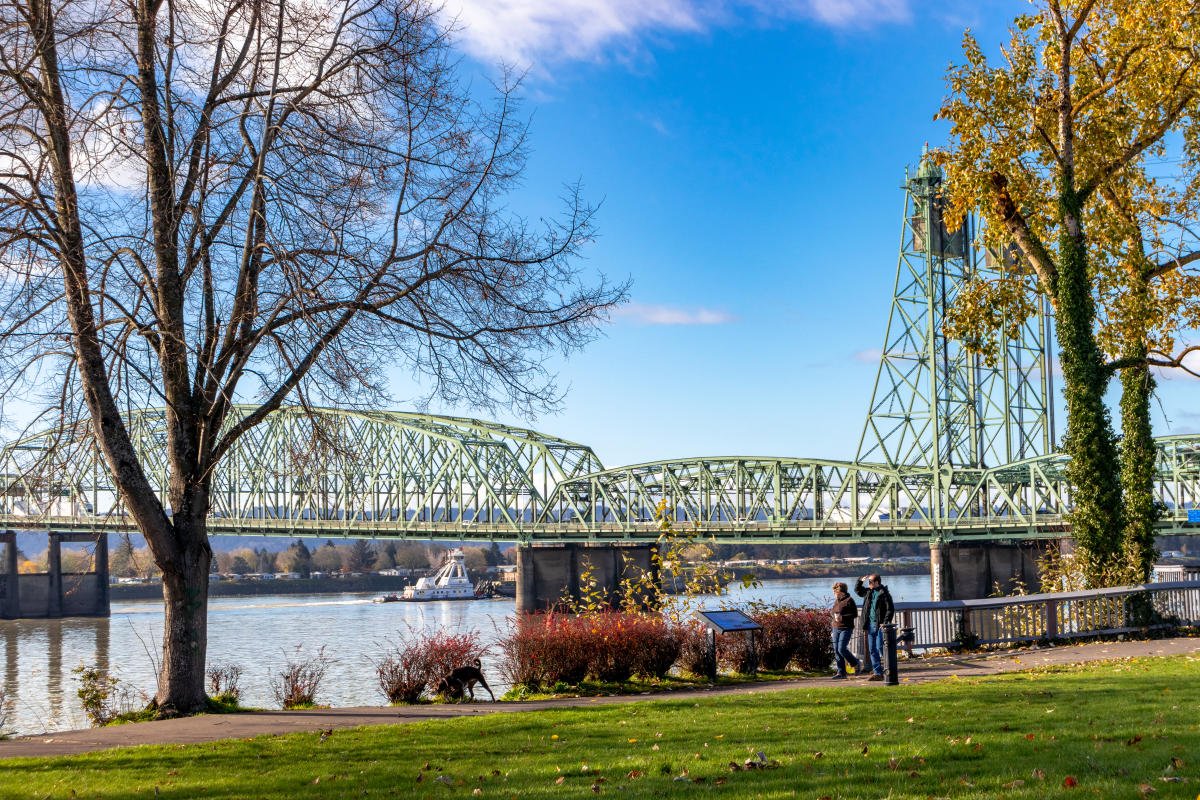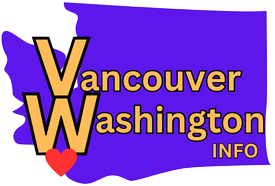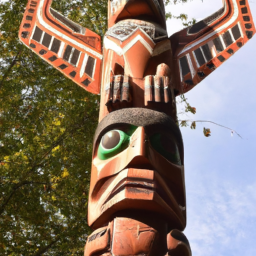
Exploring the Indigenous Heritage of Vancouver Washington
Vancouver, Washington is not only known for its picturesque landscapes and vibrant communities, but it is also home to a rich indigenous heritage. As you delve into the depths of this city, you will uncover a tapestry of local indigenous cultures that have not only shaped the lands we walk on but have also contributed immensely to the diverse fabric of Vancouver’s identity. From the unique artistic expressions to the age-old traditions passed down through generations, the indigenous people of this region have left an indelible mark that continues to be celebrated and cherished today. Join us on a journey of exploration as we uncover the captivating stories and untold wonders of Vancouver’s indigenous heritage.
Table of Contents
ToggleHistory of Indigenous Peoples in Vancouver Washington
Prehistoric Native American Tribes in the Area
Vancouver, Washington, has a rich history of Indigenous peoples dating back thousands of years. Long before European settlers arrived, the region was home to numerous prehistoric Native American tribes. These tribes lived off the land, relying on hunting, fishing, and gathering for sustenance. They developed sophisticated societies and cultures, with deep connections to the natural environment.
Arrival of European Settlers and Impact on Indigenous Peoples
The arrival of European settlers in the 18th century brought significant changes to the Indigenous peoples of Vancouver. The influx of fur traders, missionaries, and settlers caused disruptions to Indigenous communities and their way of life. The introduction of new diseases, such as smallpox, had devastating effects on the Indigenous population, leading to a significant decline in numbers.
Reservation Era and Forced Relocation
During the 19th century, the US government implemented a policy of forced relocation and the establishment of reservations. Indigenous peoples in the Vancouver area, like many Native American tribes across the country, were forcibly removed from their ancestral lands and confined to reservations. This period of history marked a dark chapter in the treatment of Indigenous peoples and the loss of their traditional territories.
Resurgence of Indigenous Culture and Activism
In recent decades, there has been a resurgence of Indigenous culture and activism in Vancouver, Washington. Indigenous communities have worked tirelessly to reclaim their heritage, revitalize their languages, and preserve their cultural practices. Through community events, cultural celebrations, and educational programs, the Indigenous peoples of Vancouver are reclaiming their rightful place in the region’s history and shaping its future.
Local Indigenous Cultures of Vancouver Washington
Chinook Nation
The Chinook Nation is one of the Indigenous groups with a longstanding presence in the Vancouver area. The Chinook people have inhabited the region for thousands of years and have a rich cultural heritage. They are known for their intricate basketry, wood carving, and traditional fishing practices.
Cowlitz Indian Tribe
The Cowlitz Indian Tribe is another important Indigenous group in Vancouver, Washington. With a history dating back over 10,000 years, the Cowlitz people have a deep connection to the land and the Columbia River. They are skilled in traditional crafts, such as beading and weaving, and actively participate in cultural revitalization efforts.
Klickitat Tribe
The Klickitat Tribe, a part of the Yakama Nation, has played a significant role in the history and culture of Vancouver, Washington. They have a complex and vibrant heritage that includes traditional practices like fishing, hunting, and gathering. The Klickitat people are renowned for their beadwork, regalia, and storytelling traditions.
Yakama Nation
The Yakama Nation is a larger Indigenous group that encompasses several tribes, including the Klickitat Tribe. The Yakama people have a strong presence in the Vancouver area and have contributed significantly to the cultural fabric of the region. They have a rich spiritual tradition and are known for their intricate basket weaving and traditional arts.
Duwamish Tribe
The Duwamish Tribe, traditionally known as the Dkhw’Duw’Absh, has historical ties to the Vancouver area. They are coastal Salish people and have a deep knowledge of the natural environment. The Duwamish Tribe actively engages in cultural preservation and environmental stewardship.
Snoqualmie Tribe
The Snoqualmie Tribe, part of the larger Coast Salish people, has a unique culture and history in the Vancouver region. They are known for their intricate carvings, woven textiles, and traditional storytelling. The Snoqualmie Tribe has been actively working to preserve their language and cultural practices.
Quinault Indian Nation
The Quinault Indian Nation, though not directly located in Vancouver, Washington, has cultural and historical ties to the area. The Quinault people have a strong connection to the land, particularly the coastal regions. They have a rich artistic tradition, including basket weaving, wood carving, and traditional regalia making.
Muckleshoot Indian Tribe
The Muckleshoot Indian Tribe, while not located directly in Vancouver, Washington, has contributed significantly to the region’s Indigenous heritage. They have a vibrant culture that includes traditional practices such as fishing, gathering, and carving. The Muckleshoot people are known for their intricate beadwork and basketry.
Colville Tribes
The Colville Tribes, an amalgamation of several tribes, have historical connections to the Vancouver area. They have a diverse cultural heritage that encompasses traditional practices like fishing, hunting, and storytelling. The Colville Tribes actively engage in cultural preservation and language revitalization efforts.
Confederated Tribes of the Umatilla Indian Reservation
The Confederated Tribes of the Umatilla Indian Reservation, located in neighboring Oregon, have cultural ties to Vancouver, Washington. They have a rich history and are known for their traditional arts, including beadwork and basketry. The Umatilla people continue to practice and pass down their cultural traditions.
Traditional Indigenous Practices and Heritage Sites
Fishing and Salmon Culture
Fishing and salmon culture have long been integral to the Indigenous peoples of Vancouver, Washington. The tribes relied on the abundant salmon runs in the Columbia River and its tributaries for sustenance and cultural traditions. The tribes practiced sustainable fishing methods, honoring the salmon as a sacred and vital resource.
Canoeing and Traditional Transportation
Canoeing played a crucial role in the transportation and trade networks of the Indigenous peoples of Vancouver, Washington. Tribal communities used dugout canoes made from large cedar trees to navigate the waterways, connecting different regions and facilitating cultural exchange. To this day, canoe journeys and races are organized to honor and celebrate this cultural heritage.
Cultural Practices and Artistic Expressions
Indigenous peoples in Vancouver, Washington, have a rich tradition of cultural practices and artistic expressions. These include dances, ceremonies, regalia-making, and storytelling. Traditional arts such as basket weaving, beadwork, and wood carving are still practiced and passed down from generation to generation. The creativity and skill of Indigenous artisans continue to showcase the vibrant cultural heritage of the tribes.
Sacred Sites and Cultural Landscapes
Vancouver, Washington, and its surrounding areas are home to numerous sacred sites and cultural landscapes that hold immense significance for the Indigenous peoples. These sites often include ancestral burial grounds, gathering places, and locations where important ceremonies and rituals take place. Respecting and protecting these sacred sites is essential to preserving the cultural heritage and spiritual traditions of the tribes.
Land Acknowledgment in Vancouver Washington
Importance and Purpose of Land Acknowledgment
Land acknowledgment is a powerful way to recognize and honor the Indigenous peoples who have lived on and cared for the land that is now Vancouver, Washington, for thousands of years. It is an official statement that acknowledges the traditional custodians of the land and recognizes the ongoing relationship between Indigenous peoples and their territories. The purpose of land acknowledgment is to foster understanding, respect, and reconciliation.
Efforts and Initiatives in Acknowledging Indigenous Lands
In recent years, there has been a growing movement to incorporate land acknowledgment into public gatherings, events, and institutional practices in Vancouver, Washington. Government bodies, educational institutions, and cultural organizations are actively working to include land acknowledgment as a standard practice. This recognition helps to raise awareness about the history and contemporary issues faced by Indigenous communities and signals a commitment to respect and support their rights.
Benefits of Land Acknowledgment and Reconciliation
Land acknowledgment can contribute to the process of reconciliation by promoting a more accurate understanding of history, encouraging respectful relationships with Indigenous communities, and providing opportunities for collaboration and partnership. It helps to honor and validate the history, culture, and contributions of Indigenous peoples while fostering a greater sense of unity and inclusivity within the community.
Recognition of Indigenous Rights and Sovereignty
Treaty Rights and Agreements
Treaty rights and agreements are essential frameworks for recognizing and affirming the sovereignty and rights of Indigenous peoples. Many of the tribes in the Vancouver, Washington, area have treaties and agreements with the US government, which outline their rights to traditional lands, fishing and hunting rights, and self-governance. Upholding these treaties is crucial in supporting Indigenous rights and sovereignty.
Indigenous Governance and Self-Determination
Indigenous governance and self-determination are fundamental aspects of Indigenous rights. The tribes in Vancouver, Washington, have their own governance structures and systems that allow them to make decisions and govern their communities in accordance with their traditions and values. Empowering Indigenous communities in matters of self-governance is vital for promoting social, cultural, and economic well-being.
Challenges and Progress in Asserting Indigenous Rights
The journey to assert Indigenous rights and sovereignty has been filled with challenges and obstacles. Indigenous communities continue to face issues such as land disputes, environmental degradation, and economic inequalities. However, there have also been significant strides in recognizing and supporting Indigenous rights. Collaboration between tribes, government entities, and non-profit organizations has resulted in positive changes and increased awareness of Indigenous issues in the Vancouver area.
Indigenous Languages of the Vancouver Washington Area
Overview of Indigenous Languages
The Vancouver, Washington area was historically home to a diverse array of Indigenous languages, each representing the unique culture and heritage of the tribes. Chinookan languages, Sahaptian languages, and Salishan languages were among the linguistic families present. These languages are highly complex and hold immense value for the cultural identity and spiritual connection of Indigenous communities.
Efforts to Preserve and Revitalize Indigenous Languages
The preservation and revitalization of Indigenous languages have become focal points within Indigenous communities and organizations in Vancouver, Washington. Language revitalization programs, immersion schools, and the development of language resources have been instrumental in creating opportunities for language transmission and perpetuation. These efforts are crucial for maintaining cultural identity and ensuring the survival of Indigenous languages for future generations.
Importance of Language in Cultural Survival
Language plays a vital role in the cultural survival and resilience of Indigenous peoples. It holds the key to understanding and preserving traditional knowledge, histories, and cultural practices. Language also serves as a medium for storytelling, ceremonial expressions, and community cohesion. By revitalizing and preserving their languages, Indigenous communities in Vancouver, Washington, are actively reclaiming their cultural heritage and strengthening their identities.
Indigenous Art, Crafts, and Cultural Representations
Traditional Indigenous Artforms and Techniques
Traditional Indigenous artforms in Vancouver, Washington, encompass a wide range of mediums and styles. These include intricate beadwork, basket weaving, wood carving, regalia making, and traditional prints. Each tribe has unique artistic expressions that reflect their cultural stories, histories, and connection to the natural environment. Traditional artforms not only serve as cultural expressions but also contribute to the economic prosperity of Indigenous artisans and their communities.
Contemporary Indigenous Art and Artists
Contemporary Indigenous art in Vancouver, Washington, is a dynamic and evolving field that encompasses a wide range of artistic mediums and styles. Indigenous artists are exploring new forms of expression while incorporating traditional techniques and themes. These artists use their work to address social and political issues, challenge colonial narratives, and celebrate the resilience and creativity of Indigenous communities. The contemporary Indigenous art scene in Vancouver showcases the diversity and innovation of Indigenous artistic practices.
Museums and Galleries Showcasing Indigenous Culture
Vancouver, Washington, is home to museums and galleries that showcase Indigenous culture and art. These institutions provide spaces to honor and celebrate Indigenous heritage, educate the public, and promote cross-cultural understanding. Exhibitions, workshops, and events are organized to facilitate dialogue and appreciation for Indigenous artistic expressions. By supporting these institutions, individuals have the opportunity to engage with and learn from Indigenous art and culture.
Environmental Stewardship and Indigenous Knowledge
Indigenous Ecological Wisdom and Sustainability
Indigenous peoples in Vancouver, Washington, possess ecological wisdom and knowledge that has been cultivated over countless generations. They have a profound understanding of the natural environment and its interconnectedness. Indigenous communities have long practiced sustainable land management, recognizing the importance of preserving ecosystems for future generations. Their traditional knowledge offers valuable insights into ecological sustainability and the protection of natural resources.
Indigenous Practices for Natural Resource Management
Traditional Indigenous practices for natural resource management have played a significant role in shaping the landscape of Vancouver, Washington. Indigenous communities have implemented techniques such as controlled burning, selective harvesting, and regenerative agriculture to maintain the balance of ecosystems. These practices demonstrate the deep connection between culture, sustainability, and the responsible use of natural resources.
Collaborations in Environmental Protection and Restoration
Collaborations between Indigenous communities, government agencies, and environmental organizations have led to successful environmental protection and restoration projects in Vancouver, Washington. Recognizing the value of Indigenous knowledge and practices, partnerships have been formed to restore habitats, preserve cultural landscapes, and mitigate the impacts of development. These collaborations demonstrate the importance of honoring Indigenous perspectives and expertise in addressing environmental challenges.
Educational Programs and Resources on Indigenous Heritage
Indigenous Studies Programs at Local Institutions
Local educational institutions in Vancouver, Washington, offer Indigenous studies programs that provide comprehensive education on Indigenous history, culture, and contemporary issues. These programs create opportunities for students to learn directly from Indigenous scholars and activists. The inclusion of Indigenous studies in academic curricula promotes a more accurate and nuanced understanding of Indigenous peoples and their contributions to society.
Cultural Centers and Museums Offering Indigenous Education
Cultural centers and museums in Vancouver, Washington, play a crucial role in offering educational resources and programs on Indigenous heritage. These institutions provide opportunities for the public to engage with Indigenous culture through exhibits, workshops, and lectures. They act as spaces for dialogue, fostering cross-cultural learning, and promoting respect for Indigenous communities.
Community Events and Workshops for Indigenous Learning
Community events and workshops play an important role in promoting Indigenous learning and understanding in Vancouver, Washington. These events provide platforms for Indigenous communities to showcase their culture, history, and traditions. Workshops on traditional arts, language, and ceremonies create opportunities for people to engage directly with Indigenous knowledge holders and learn from their expertise.
Respecting and Supporting Indigenous Communities
Understanding Cultural Appropriation and Avoiding Harmful Practices
Respecting Indigenous communities requires an understanding of cultural appropriation and a commitment to avoiding harmful practices. It is crucial to approach Indigenous cultures with respect and humility, recognizing that they are living and evolving. Non-Indigenous individuals and communities should seek to educate themselves, listen to Indigenous voices, and actively challenge harmful stereotypes and appropriation.
Supporting Indigenous-Owned Businesses and Artisans
Supporting Indigenous-owned businesses and artisans is an essential way to show solidarity and respect for Indigenous communities in Vancouver, Washington. By purchasing Indigenous-made products, such as traditional crafts, artworks, and locally sourced goods, individuals can contribute to the economic strength and self-determination of Indigenous artisans and entrepreneurs. Supporting Indigenous businesses helps preserve cultural practices and fosters community resilience.
Engaging with Indigenous Community Organizations
Engaging with Indigenous community organizations is an effective way to support and learn from Vancouver’s Indigenous communities. These organizations work tirelessly to address social, cultural, and economic challenges faced by Indigenous peoples. Individuals can volunteer, donate, or participate in events and initiatives organized by these organizations to actively contribute to positive change and promote Indigenous rights and sovereignty.
In exploring the Indigenous heritage of Vancouver, Washington, it becomes evident that Indigenous cultures have a deep-rooted history and an enduring impact on the region. From their traditional practices to artistic expressions, Indigenous peoples have vital contributions worth acknowledging, respecting, and supporting. By fostering understanding, celebrating their heritage, and upholding their rights, Vancouver, Washington, can build a more inclusive and vibrant community.

June 2021 - A Message from the CEO
You May Also Like
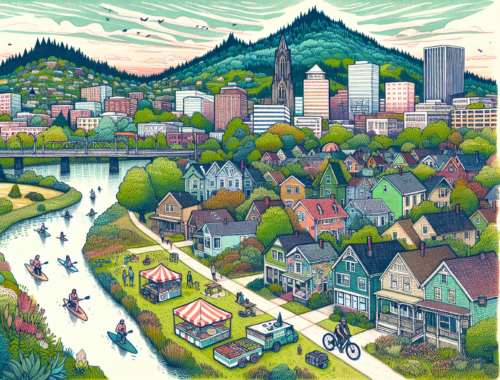
Why Portland Oregon Should Be on Your Travel Bucket List
15 January 2024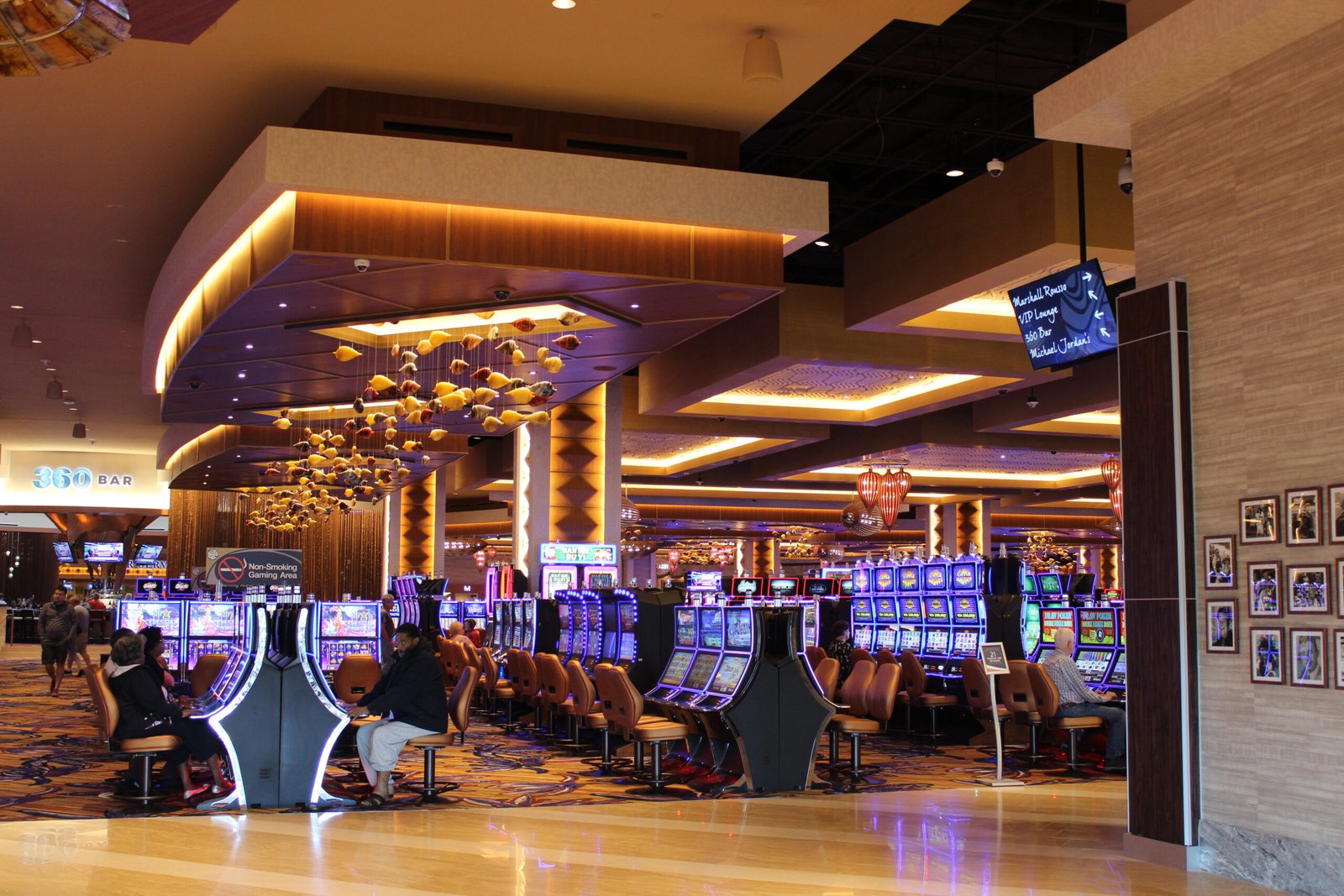
Casinos Vancouver Washington
7 August 2023